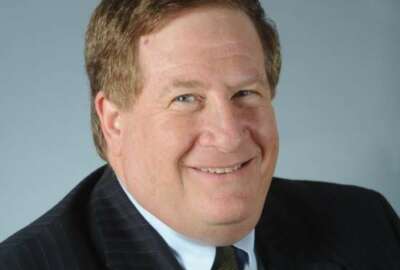
Agencies ramp up coronavirus preparations, as NOAA plans large-scale telework ‘test’
The National Oceanic Atmospheric Administration is the latest agency to conduct a large-scale test of its telework capabilities amid growing concerns over the...
Several agencies have begun to ramp up preparations for their workforces ahead of a potential COVID-19 outbreak in their regions.
The National Oceanic and Atmospheric Administration will conduct a telework test exercise on Thursday as part of its ongoing preparations for potential coronavirus developments, the agency said Monday.
COVID-19 is the illness caused by the current strain of the coronavirus.
“Participation in this exercise is voluntary and optional but strongly encouraged provided that you have consulted with your supervisor and are able to continue work on organizational priorities and mission-essential operations while teleworking,” Benjamin Friedman, NOAA’s deputy undersecretary for operations, said Monday in an email to employees, which Federal News Network obtained.
The exercise will test NOAA’s capabilities, resources and preparedness for “large-scale teleworking.” It applies to all NOAA employees and contractors at the agency’s offices in Silver Spring and Germantown, Maryland, and its offices in the Herbert C. Hoover Building in Washington, D.C.
Facilities will stay open on Thursday for those employees who aren’t eligible to telework or can’t work remotely this week for other reasons, Friedman said. Employees can enter into ad-hoc telework agreements with their supervisors, Friedman said, because this is considered a “continuity of operations” exercise.
In the email, NOAA reminded employees to take home their laptops, power cord and other equipment needed to connect remotely with the agency’s networks.
“I also encourage you to begin taking these essential items home daily, in case additional telework days are implemented in the future.” Friedman said.
Other agencies are making their own preparations.
The Energy Department is offering similar guidance for its employees, though the March 10 message from Rocky Campione, the agency’s chief information officer, made no mention of the coronavirus. Instead, Energy urged employees to take home laptops and other equipment every day. Employees should test their virtual private networking (VPN) connections to agency systems.
“In preparation for testing the telework capabilities of the department, OCIO will be initiating several actions over the next two weeks to ensure adequate network capacity to carry out the mission of the department when remote access is required.
The Bureau of Fiscal Service said last week it will conduct a “tabletop” exercise to determine whether it’s prepared to continue its mission during a potential pandemic scenario, which may include more telework availability for employees, according to the agency’s briefing with the National Treasury Employees Union.
The IRS told employees it may ask those who aren’t telework eligible to report to another agency building during an office exposure.
The Federal Deposit Insurance Corporation asked its employees who plan to travel internationally to give advance notice to their supervisors. The agency is also exploring whether it can offer virtual training options over in-person sessions at FDIC facilities, according to a March 4 update to employees.
All non-essential foreign business travel is suspended at FDIC through March, the agency said.
The Department of Homeland Security has two agency pandemic guides for both employees and supervisors.
DHS’ Office of Occupational Safety and Health is working with the component leadership and medical professionals to issue best practices tailored toward specific, front-line professionals. The department, for example, is advising employees on how to use N-95 respirators and how much distance they should keep from each other.
“Because their mission is different [and] how they interact with the public is different, it will never be a once-size fits all,” Angela Bailey, DHS’ chief human capital officer, told an industry group Tuesday at an ACT-IAC event in Washington. “It will all be operationally-driven as to how we protect each of those individuals.”
In the lead-up to the federal government’s largest peacetime operation, the Census Bureau has also issued guidance to the enumerators it will hire and members of the public who will interact with them.
In a statement dated Feb. 25, the bureau’s director Steven Dillingham said the safety of the American public and Census employees remains its number-one priority.
The bureau, Dillingham said, continues to work closely with the CDC, the Department of Health and Human Services and the White House’s coronavirus task force, as well as state and local health officials.
“Operations for the 2020 Census and our ongoing household surveys have procedures built in that specifically anticipate epidemics and pandemics, and we will continue to work with the relevant authorities to keep those up to date,” he said.
This May, the bureau will have up to 500,000 enumerators knock on doors to follow up with households that didn’t fill out a 2020 census questionnaire. Most households will receive their first notice about the decennial count this week or next week.
The Department of Veterans Affairs has adopted a no-outside visitor policy at all 134 nursing homes, the agency announced Tuesday. In addition, all VA nursing homes will stop taking new admissions.
VA has 41,000 veterans in nursing homes across the country, where patients are mostly older and have multiple health conditions, making them especially vulnerable to COVID-19 infection, the department said.
Nursing home staff members will be screened daily for the virus, VA said.
What will happen on military bases?
Geographic commanders currently have the authority to make specific guidance as the situation evolves. U.S. Central Command, U.S. Indo-Pacific Command and U.S. European Command restricted travel for service members.
In areas with high infection rates like South Korea and Italy, the military is restricting base access.
Acting Defense Undersecretary for Personnel and Readiness Matthew Donovan issued a Feb. 25 memo on risk-based measured responses to the outbreak. The memo tells installation commanders to maximize telework before the transmission of the disease hits the area.
If people are infected on the installation, commanders are encouraged to restrict travel, modify exercises and provide protective equipment for high risk personnel. If infections continue, commanders should consider declaring a local public health emergency and limiting access to the base, canceling large gatherings. If there is a widespread infection, commanders should do all of the previous tasks and also cancel non-mission essential activities and implement quarantine. Some bases are closing childcare centers as well.
Scott Maucione and Jory Heckman contributed to this story.
Copyright © 2025 Federal News Network. All rights reserved. This website is not intended for users located within the European Economic Area.
Nicole Ogrysko is a reporter for Federal News Network focusing on the federal workforce and federal pay and benefits.
Follow @nogryskoWFED
Related Stories

USPS preps for coronavirus with updated pandemic flu plan





